This post is from Pure Earth development associate Erin Andrews.
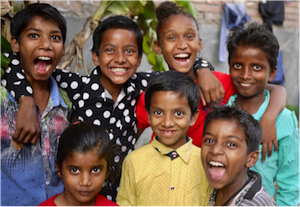 This is an important year for Pure Earth.
This is an important year for Pure Earth.
It marks 20 years of leading the charge in fighting pollution – 20 years of saving lives, particularly the lives of children in poor communities, by reducing disease-causing pollution.
With your help, we’ve accomplished so much. Millions of children and families around the world are healthier today. Here is a summary of our 2018 accomplishments and our plans for 2019.
Key 2018 accomplishments include:
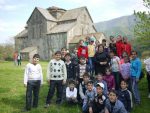 The first lead site remediation in Armenia was completed. With the support of Armenia Fund USA Eastern Affiliate, the Apostolic church and monastery in Akhtala is now lead-free and safe for generations of children and their families. It will serve as a pilot project showing that polluted sites can be cleaned up in a cost effective manner.
The first lead site remediation in Armenia was completed. With the support of Armenia Fund USA Eastern Affiliate, the Apostolic church and monastery in Akhtala is now lead-free and safe for generations of children and their families. It will serve as a pilot project showing that polluted sites can be cleaned up in a cost effective manner.
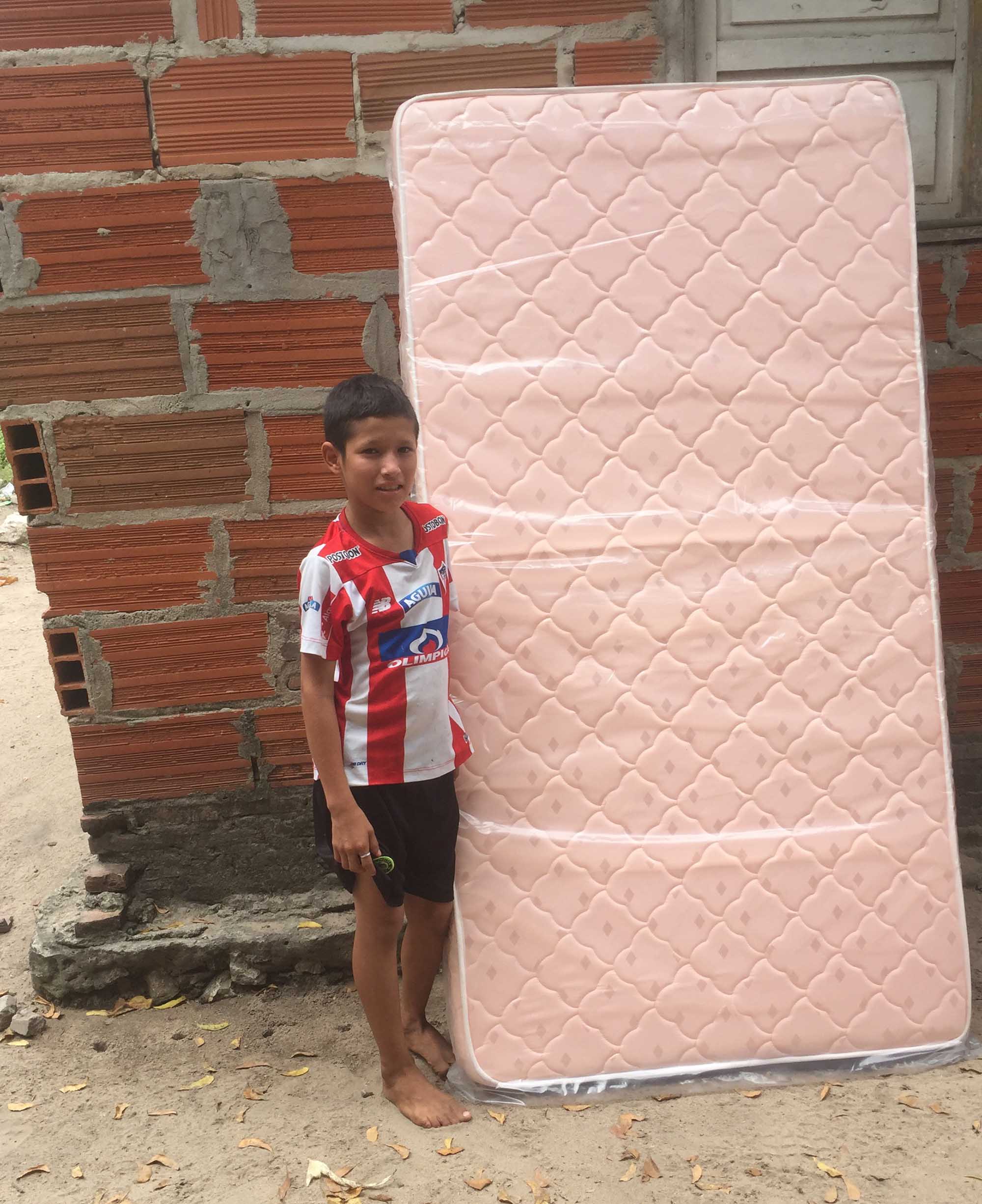 Children were protected from being exposed to poison in their sleep. After our cleanup in the Colombian community of Malambo, we unexpectedly found that some children’s blood lead levels were still high. Following some environmental detective work, we found another source of exposure: lead particles from old toxic soil was trapped in children’s mattresses, constantly re-exposing them. Pure Earth mobilized and replaced the lead-saturated mattresses of residents, so children in Malambo now have a safe and sound sleep. And by building credibility and capacity within the country, we are now working with the government on a more comprehensive pollution plan.
Children were protected from being exposed to poison in their sleep. After our cleanup in the Colombian community of Malambo, we unexpectedly found that some children’s blood lead levels were still high. Following some environmental detective work, we found another source of exposure: lead particles from old toxic soil was trapped in children’s mattresses, constantly re-exposing them. Pure Earth mobilized and replaced the lead-saturated mattresses of residents, so children in Malambo now have a safe and sound sleep. And by building credibility and capacity within the country, we are now working with the government on a more comprehensive pollution plan.
 We documented 65% reduction of blood-lead levels of participating children within 6 months after we expanded our training of potters to the state of Puebla, as part of Barro Aprobado — our Lead and Health Initiative in Mexico, which addresses widespread lead poisoning caused by traditional lead-glazed pottery.
We documented 65% reduction of blood-lead levels of participating children within 6 months after we expanded our training of potters to the state of Puebla, as part of Barro Aprobado — our Lead and Health Initiative in Mexico, which addresses widespread lead poisoning caused by traditional lead-glazed pottery.
Pure Earth’s advocacy resulted in the Mexican government including, for the first time, blood lead testing in the national health servey, which will provide critical baseline data.
 In Peru, we continued training artisanal and small scale gold miners in mercury-free methods. Over 200 miners have been trained to date, and an innovative forest restoration project was successfully piloted in an area degraded by the mercury used in gold mining. The government has now agreed to allocate $60 million to scale-up this forestation method.
In Peru, we continued training artisanal and small scale gold miners in mercury-free methods. Over 200 miners have been trained to date, and an innovative forest restoration project was successfully piloted in an area degraded by the mercury used in gold mining. The government has now agreed to allocate $60 million to scale-up this forestation method.
2019 is already off to a great start:
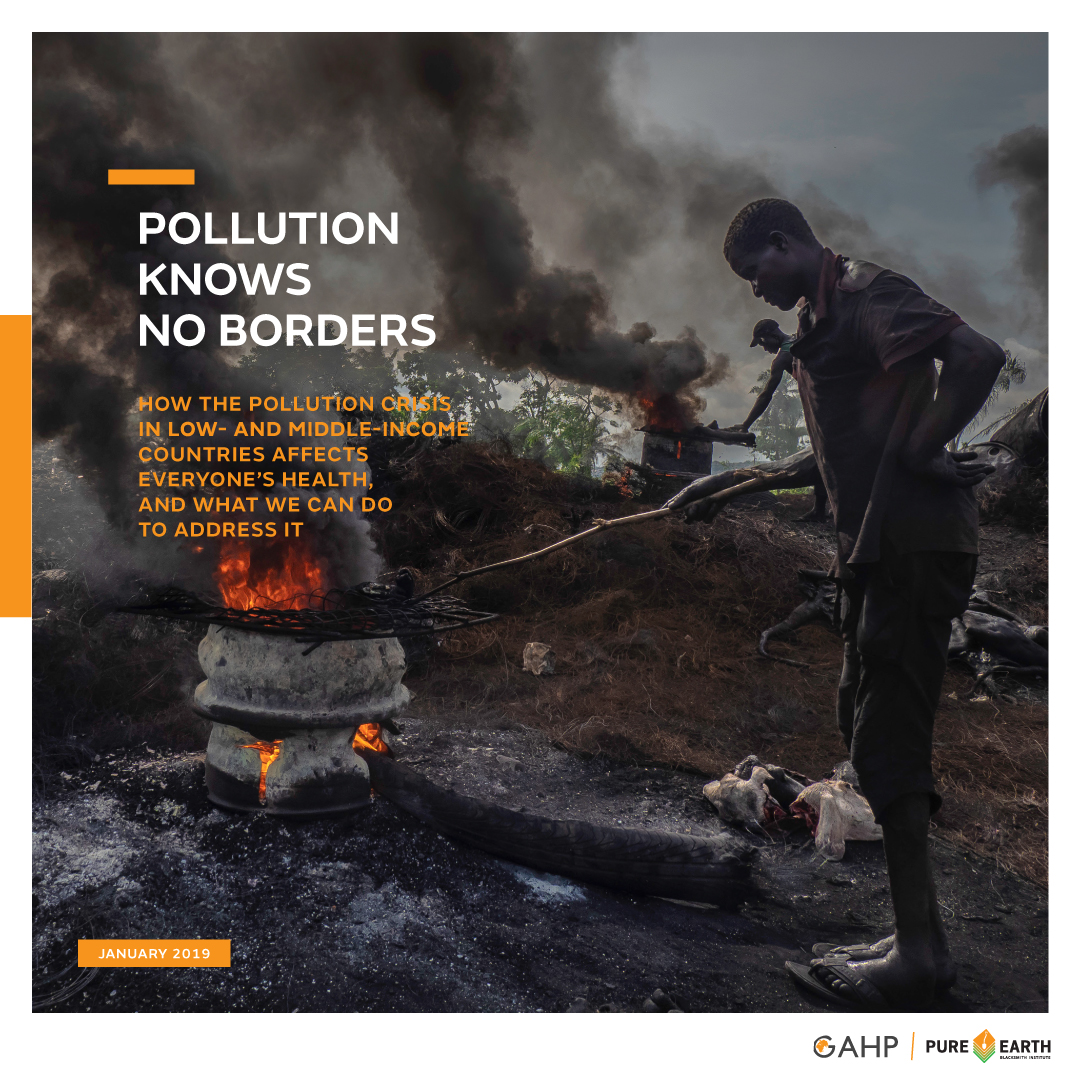 We published an important white paper, Pollution Knows No Borders, on the transboundary nature of pollution. It documents how pollution migrates from low- and middle-income countries around the globe through the air, water, food and products, affecting everyone’s health. The report also provides concrete ways to address this global issue, by controlling pollution at the source, as well as actions individuals can take to reduce their exposure to some transboundary toxins.
We published an important white paper, Pollution Knows No Borders, on the transboundary nature of pollution. It documents how pollution migrates from low- and middle-income countries around the globe through the air, water, food and products, affecting everyone’s health. The report also provides concrete ways to address this global issue, by controlling pollution at the source, as well as actions individuals can take to reduce their exposure to some transboundary toxins.
 In Indonesia, a new initiative, Women in Mining and Energy, was launched by a group of professionals, including Pure Earth’s Indonesia country director Budi Susilorini. One of the goals is to increase the participation of women in mercury-free small scale gold mining and also advance this sustainable livelihood in the mining sector for both women and men.
In Indonesia, a new initiative, Women in Mining and Energy, was launched by a group of professionals, including Pure Earth’s Indonesia country director Budi Susilorini. One of the goals is to increase the participation of women in mercury-free small scale gold mining and also advance this sustainable livelihood in the mining sector for both women and men.
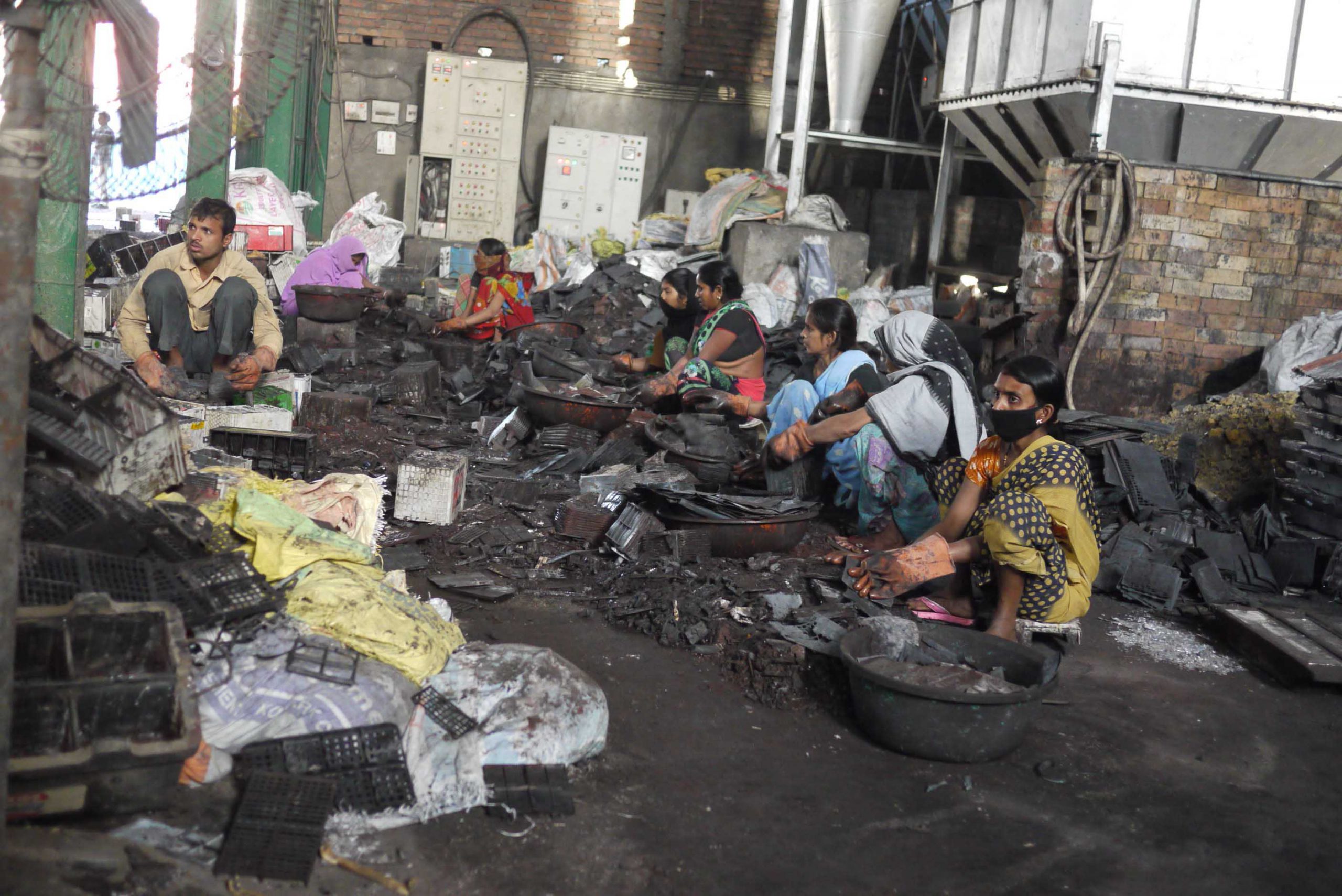 Pure Earth is collaborating with a local partner in India to establish the first collective of informal battery recyclers to formalize their operations and access state resources to relocate to an industrial zone and upgrade their practices. It is part of our continuing work in India addressing substantial lead pollution caused by the informal recycling of used lead acid batteries.
Pure Earth is collaborating with a local partner in India to establish the first collective of informal battery recyclers to formalize their operations and access state resources to relocate to an industrial zone and upgrade their practices. It is part of our continuing work in India addressing substantial lead pollution caused by the informal recycling of used lead acid batteries.
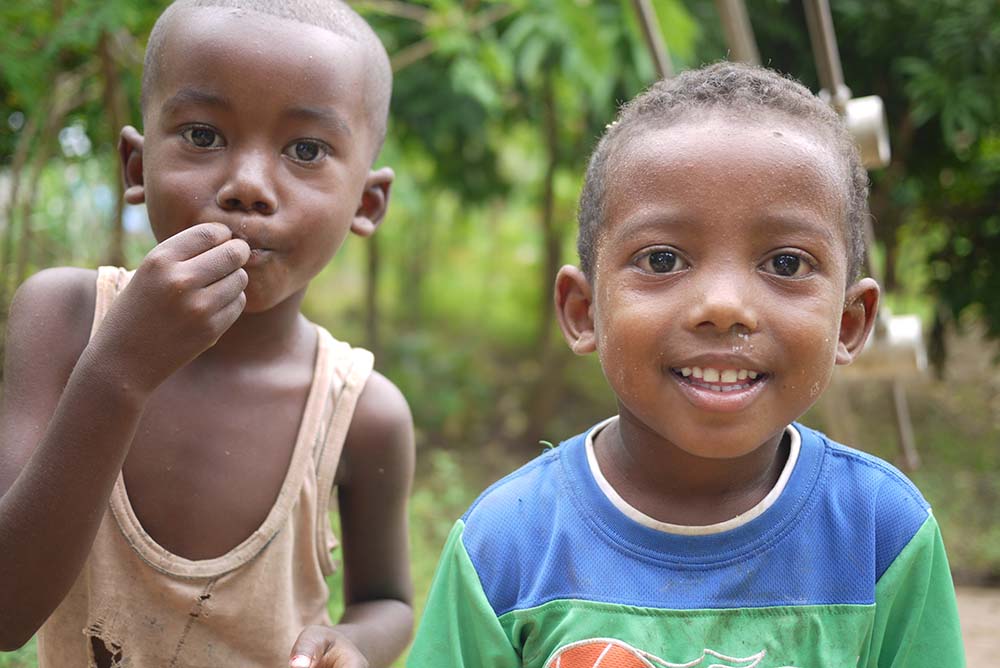 We’ve completed a Health and Pollution Action Plan (HPAP) with the government of Madagascar that analyzes pollution challenges and advances concrete actions to reduce impacts on public health in the country. It was well-received and endorsed by the ministries of health and environment. USAID, which is the lead development agency in the country, has invited Pure Earth to present at its next funder meeting this Spring. In addition, Unicef wants to fund work addressing indoor air pollution.
We’ve completed a Health and Pollution Action Plan (HPAP) with the government of Madagascar that analyzes pollution challenges and advances concrete actions to reduce impacts on public health in the country. It was well-received and endorsed by the ministries of health and environment. USAID, which is the lead development agency in the country, has invited Pure Earth to present at its next funder meeting this Spring. In addition, Unicef wants to fund work addressing indoor air pollution.
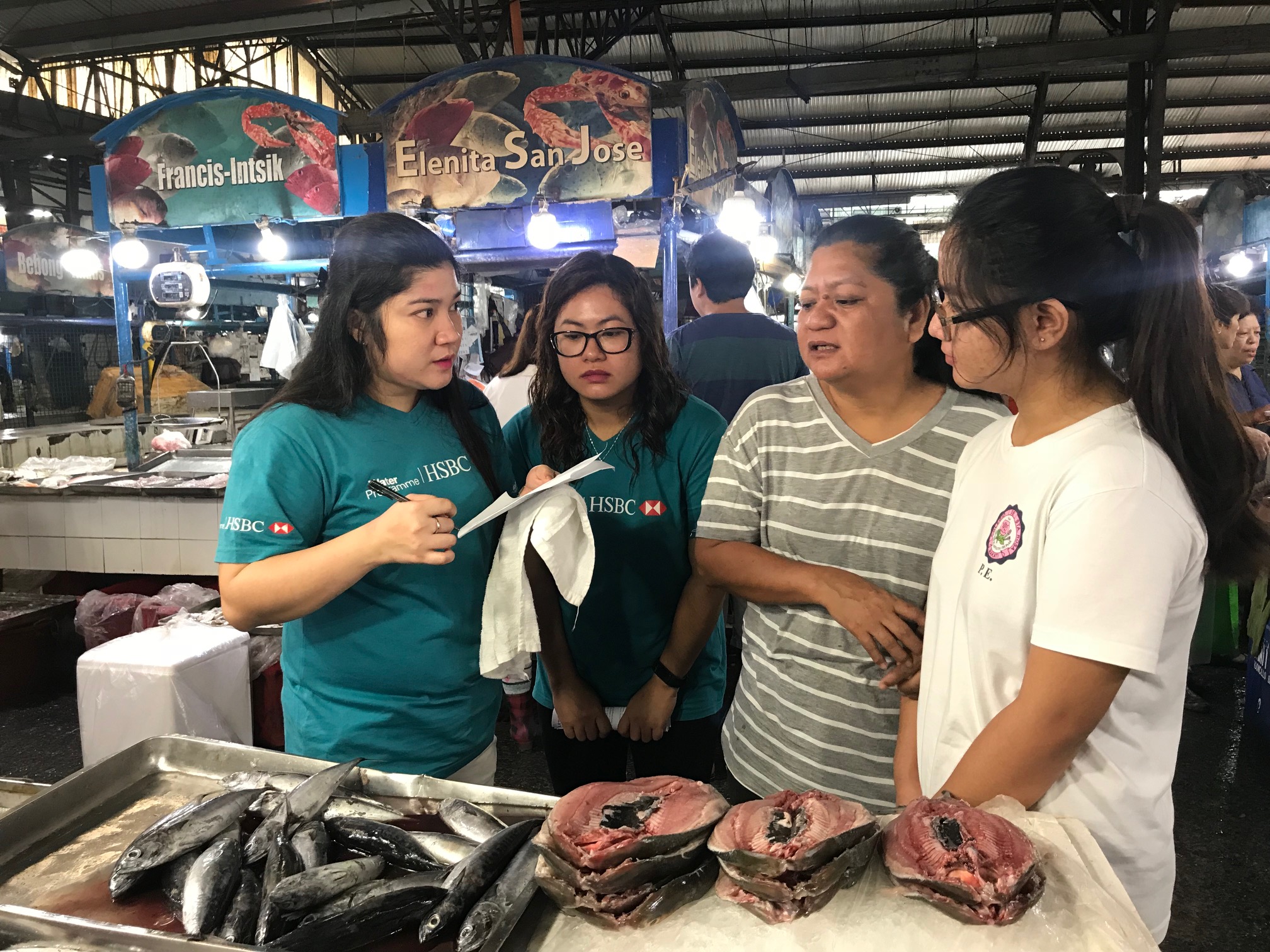 With leadership support from HSBC, we’re making important progress in our Phillipines water program, addressing the river pollution which is contaminating the Manila metro area fish supply and environment. In February, HSBC volunteers conducted a clean up to remove waste from the Alabang Cupang River System. We are also monitoring the contamination of fish in the markets and continuing to train fisherfolk in best practices to cost-effectively remove toxins from their fish farms.
With leadership support from HSBC, we’re making important progress in our Phillipines water program, addressing the river pollution which is contaminating the Manila metro area fish supply and environment. In February, HSBC volunteers conducted a clean up to remove waste from the Alabang Cupang River System. We are also monitoring the contamination of fish in the markets and continuing to train fisherfolk in best practices to cost-effectively remove toxins from their fish farms.
Success with Support
Our success wouldn’t be possible without the generosity of individuals, corporations and foundations. Your support directly benefits the health of countless vulnerable children and families through our cost-effective and life-saving solutions. We look forward to working with you throughout 2019.





